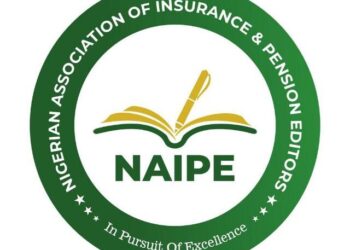By BISI OLADAPO
For 18 months since the recapitalization program of the insurance sector took off, Emmanuel Chukwulozie, commissioner for insurance has been sleeping with one eye open. The tall and soft-spoken man, an insurance professional to the core who is determined to conduct a successful recapitalization exercise during his tenure as the helmsman of the risk-bearing sector, will put to rest all his worries and anxieties when the deadline given to the operators expires next week.
Then, he can go to bed with both eyes closed, at least for a while.
“National Insurance Commission, NAICOM, and the insurance industry have a historical role to play in the successful execution of the task on our hands in implementing the recapitalization/consolidation exercise in the insurance industry. The time is actually moving fast and February 28, 2007, is a few days from now”, he says.
The ongoing recapitalization, the third in 10 years, commenced on September 5, 2005, when Ngozi Okonjo-Iweaala, then the minister of finance announced a new minimum capital base for insurance companies. All the operators were ordered to comply by February 28, 2007, or lose their licenses.
The directives also specified the new capital requirements according to the type pf insurance business. The minimum share capital for life insurance companies was increased from N150 million to N2 million; general insurance, from N200 million to N3 billion; and reinsurance companies, from N350 million to N10 billion.
From the outset, the industry’s supervisory authority, NAICOM, made it clear to the operators that mergers and acquisitions are the only acceptable mode for achieving the new capital base. It also set quarterly agenda for the operators to adhere to.
There is perspiration, anxiety and apprehension in the market. The market tension and volatility is informed not only because of the possibility of another round of liquidation and closure of companies (the last exercise resulted in the liquidation of 14 companies but, most importantly, the fact of consolidation which will see many insurance companies fusing because of the increased capital requirement for the emerging restructured risk-bearing sector.
The new capital regime came barely two years after the increase of capital base mandated by the Insurance Act 2003. That exercise though concluded a year after, specifically on February 27, 2004, left 107 of the 133 insurance companies operating in the market grasping for breath after passing through the tedium of chasing reluctant investors for funds. Before then the Insurance Decree No.2 of 1997 jerked up the share capital of general or life insurance companies to N20 million, special risk to N70 million and composite to N90 million.
As in the past, the operators again initially kicked against the latest directive to increase their capital base. They were particularly worries that the quantum of increases did not take cognizance of the generally low level of economic activities and the increasingly dwindling purchasing power of consumers of insurance products and services. Besides, many operators argue that due to the fundamental differences in the nature of banking and insurance products, insurance companies do not require very large capital to operate successfully. They are equally disturbed that a general increase in capital base without a similar general increase in demand for insurance will lead to overcapacity and price wars.
“The truth is that most of us are yet to generate enough business to justify the current level of recapitalization let alone being prepared for fresh exercise. Our position at the institute is for the status quo to subsist for at least two more years to allow the industry to breathe a sigh of relief before another recapitalization”, says Seyi Ifaturoti, president of the Chartered Insurance Institute of Nigeria, CIIN.
But NAICOM still went ahead. The commission believes now is the time to empower the sector in line with international best practices. Besides, government is bent on ensuring the emergence of specialized companies, boost local retention capacity of insurers especially in oil and gas, enhance the industry’s effort in the area of manpower development, and expand the frontiers of insurance through the grassroots.
But when the operators realized that NAICOM was relentless in pursuing the reform to conclusion, they rushed to the drawing board to develop strategies, not only to meet the statutory requirement but to grow their respective businesses.
Consolidation options before them are; to stand alone as general insurance companies; merge two or more general business companies, composite company to transfer either non-life business or life business to another company; two or more life companies with strong composite companies to acquire one or more weaker non-life or life companies; several small-size general of life companies to pool into a mega company.
At the end of the day, the existing 103 companies for the purpose of compliance formed three groups: private limited liability companies that want to remain private and stand alone; public limited liability companies that want to stand alone; and either private or public limited liability companies involved in mergers or acquisitions:
Group A companies mainly source fund through private placement. Such companies include Sovereign Trust Insurance Company, which later converted to public and merged with prime Trust Insurance, Coral Insurance company and Confidence Insurance Company, Industrial and General Insurance Company, IGI, the largest private insurer in the country, which also converted to public and acquired subsidiary company Post Life and General Insurance Company, will be listed on the Nigerian Stock Exchange, NSE.
Also Godlink Insurance Company went public and acquired Lexington Insurance Company, Leadway Assurance Company standing alone, and also acquired Atlantic Insurance just as NICON insurance standing alone acquired UBA Insurance (general businesses).
Capital Express Insurance Company ended up acquiring life business of 12 companies namely Regency Insurance, Central Insurance, Sovereign Trust Insurance, Guardian Trust Insurance, Golden Insurance, Oasis Insurance, Linkage Assurance and Nigeria General Insurance Company. Regency Insurance merged with Destiny Insurance, Nigeria Alliance Insurance Company and Capital Express General Insurance.
Group B, comprising of public limited liability companies like Niger Insurance and Great Nigeria Insurance, sourced funds through right issues while, they each remain undiluted. LASACO Assurance, apart from going to the capital market also acquired ELMAC Assurance; NEM Insurance, in addition to private placement, merged with Vigilante Insurance while Mutual Benefit Assurance merged with Worldwide Insurance Company.
Crusader Insurance apart from going to the capital market, merged with Admiral Insurance Company and acquired Golden Insurance, Refuge Insurance Company and Royal Trust Insurance. Standard Alliance Insurance, standing alone, sourced funds through public offer as a quoted company. Aiico Insurance got a foreign partner, AIG, apart from going to the capital market to source funds. It also merged with Nfi Insurance Company and Lamda Insurance Company, Prestige Assurance, which held public offer is standing alone too.
In Group C, many of the operators sourced for funds through right issues and public offers as well as merges and acquisitions.
International Energy Insurance merged with Rivband Insurance under this category.
Life companies like Equity Life Insurance is on its own with Equity participation of International Energy Insurance, among others. As for four reinsurance mandated to have N10 billion capital base, only Nigeria Reinsurance, now privately owned by Jimoh Ibrahim, Chairman of the NICON Group, who bought 51 per cent equity, will stand alone. Continental Reinsurance and Globe Reinsurance merged, while Universe Reinsurance converted to an underwriter and merged with Newline Insurance and Sterling Insurance.
Also standing alone are companies with bank affiliations. They include WAPIC Insurance owned by Intercontinental Bank and Guardian Express Insurance owned by Spring Bank, among others.
As at last week, 16 merger groups were putting final touches to their agreement; 25 companies bought their operators under 10 groups through successfully sealed acquisition deals; 48 others bought their operations under the platform of 16 emerging companies. By this arrangement, a total of 73 companies are involved in mergers and acquisitions.
Meanwhile, about 18 companies have indicated their readiness to still carry on with their recapitalization program either alone or by way of joint venture or technical partnership with foreign companies as part of their post-consolidation program.
Throughout the 18-month struggle to recapitalize, not less than 12 companies out of the 21 quoted on the Stock Exchange, approached the capital market to source for funds. Apart from this, 14 companies did private placements, eight gave right issues to their shareholders, and 12 companies held public offers. For companies that went to the capital market to source for funds, it was an uphill task.
So far, not all the mergers and acquisitions were successful. Eight merger agreements which went as far as signing memorandum of understanding, MoU, have collapsed. Investigations by the magazine attributed the collapse of the MoUs to failure of the post-merger due diligence tests by the companies.
“This process exposed many companies that have false information on their assets and liabilities”, says Banjoko Boyejo, a financial adviser to one of the companies. This made it impossible to assess the value of their assets and liabilities and negotiate the price.
Boyejo continues, “In some cases, information to guide the structure, that is, financing and taxing of the deal, was inadequate. Some companies do not even have proper accounting procedure.” Besides, there were widespread intrigues and manipulations. In the valuation process for instance, the magazine gathered that many of the companies operate different accounting procedures which made it almost impossible to reconcile their books and adapt among those with intention to merge when they could not agree on any uniform accounting procedure to be used for due diligence.
Some other potential merger groups were found to have negative shareholders’ funds and provision for outstanding premiums, debts, litigations, contractual liabilities, NAICOM’s puerilities, taxes (VAT, sales tax, ITF, among others) and rent arrears.
“There was cooking of books by some companies. Consequently, their fundamentals were not as sound as they projected them to the public and merging partners, for example, some companies presented their premium value as asset which should not be, while over time some have been making underwriting loss which makes bad accounting,” another industry source told the magazine.
In the case of one of the three merging companies, its fundamentals and prospects looked well, but boardroom politicking eventually led to its pulling out of its merger group. The board members felt that it would be imprudent for them to pump a colossal sum of money into the recapitalization of such an unstable company, so they opted for acquisition.
When the exercise ends next week, the industry will never be the same again. According to Remi Olowude of IGI, the industry will be dominated by a few big players. “The consolidation of insurance companies in the forms of mergers and acquisitions will become inevitable, there will be an influx of foreign players armed with innovative products and new ways of doing business, and the requirement of large resources to support insurance marketing and company retention capacities”, he told the magazine.
Already, foreign investment has returned with re-emergence of AIG as management partner of Aiico Insurance, International Financial Corporation, IFC, is investing S14 million in Leadway Assurance, and there is a 50/50 strategic partnership between UBA Insurance Company and Metropolitan Holdings of South Africa, even as Oceanic Bank bought over the license of Corporate Ideal Insurance Company. These are among the fallouts of the exercise.
Few days to the deadline, an optimistic Chukwulozie, says, “We want to assure all Nigerians that from all indications, recapitalizations of the insurance sector is going to be very successful. We are looking beyond recapitalization that is, thinking post-consolidation. We realize that the development and growth of the insurance industry in Nigeria goes beyond recapitalization. The business activities have to show significant improvement to justify the capital increase”.
The Nigerian Insurance industry is 86 years old. But with recapitalization, one sees the picture of a new generation with the appearance and vigor of an 18-year old young man, combatant and immature in nature and outlook, operating in a market with untapped resources, overcrowded players and desperate to get to the top at “all costs”. Will he ever get there?
















